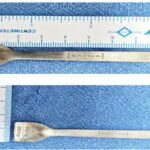India
healthysoch
New Delhi, December 18, 2019 :
Food, which has been significantly changed from its original state, with salt, sugar, fat, additives, preservatives and/or artificial colours added. Ultra-processed foods like candy, soft drinks, pizza and chips do not contain enough of the beneficial nutrients that the body requires.
Unprocessed or minimally processed foods: Vegetables, grains, legumes, fruits, nuts, meats, seafood, herbs, spices, garlic, eggs and milk.
Processed foods: When ingredients such as oil, sugar or salt are added to foods and they are packaged, the result is processed foods. Examples are simple bread, cheese, tofu, and canned tuna or beans. These foods have been altered, but not in a way that’s detrimental to health.
Ultra-processed foods: These foods go through multiple processes (extrusion, molding, milling, etc.), contain many added ingredients and are highly manipulated. Examples are soft drinks, chips, chocolate, candy, ice-cream, sweetened breakfast cereals, packaged soups, chicken nuggets, hotdogs, fries and more.
High consumption of these ultra-processed foods is associated with an increased risk of type 2 diabetes, independent of other risk factors including weight and nutritional quality of the diet, a new study indicates.
Ultra-processed foods consumption has previously being linked to increased risks of cancer, cardiovascular diseases, mortality, depressive symptoms, and metabolic disorders.
The study published online in JAMA Internal Medicine involved 104,707 participants in the ongoing, web-based NutriNet-Santé study in France. Rates of type 2 diabetes among the lowest and highest ultra-processed foods consumers were 113 and 166 per 100,000 person-years, respectively.
Over a median follow-up of 6 years, the consumption of ultra-processed foods was found to be associated with a significantly higher risk of type 2 diabetes, with a hazard ratio (HR) of 1.15 for each 10% increase of ultra-processed foods in the diet.
Other physical and chemical processes, such as high-temperature heating, are associated with the production of contaminants posing health risks, such as acrylamide, found mainly in fried potatoes, biscuits, cakes, and coffee, which have been associated with insulin resistance.
Ultra-processed foods usually go through several physical and chemical processes such as extruding, molding, pre-frying, (or) hydrogenation, possibly leading to the production of new compounds with potential cardiometabolic disruption properties.
They also typically contain food substances of no or rare culinary use (some varieties of refined sugars, hydrogenated oils) and various types of cosmetic additives (emulsifiers, sweeteners, thickening agents, colorants), with cardiometabolic effects postulated for some.
Author : Dr KK Aggarwal, President CMAAO and HCFI







